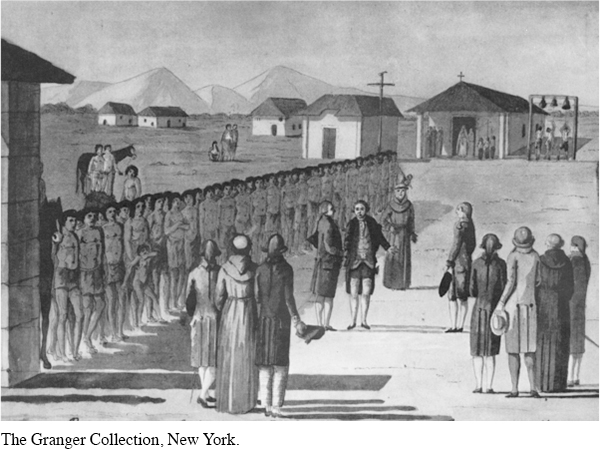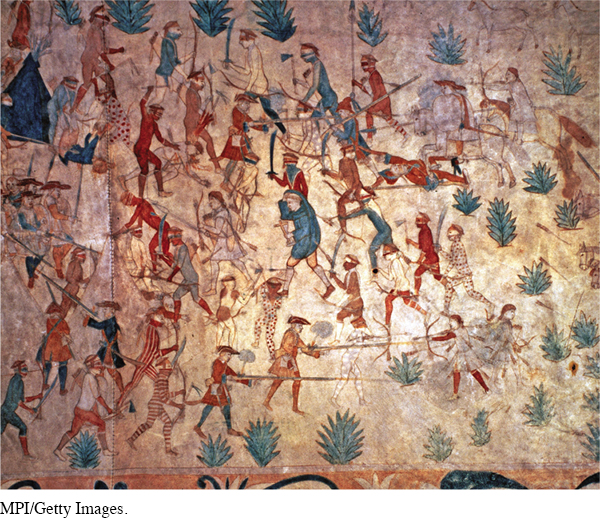The American Promise: Printed Page 129
The American Promise, Value Edition: Printed Page 120
The American Promise: A Concise History: Printed Page 140
Colonial Politics in the British Empire
The plurality of peoples, faiths, and communities that characterized the North American colonies arose from the somewhat haphazard policies of the eighteenth-
British attempts to exercise political power in their colonial governments met with success so long as British officials were on or very near the sea. Colonists acknowledged—

The American Promise: Printed Page 129
The American Promise, Value Edition: Printed Page 120
The American Promise: A Concise History: Printed Page 140
Page 130Even the best-
Since British policies did not clearly define the colonists’ legal powers, colonial assemblies seized the opportunity to make their own rules. Gradually, the assemblies established a strong tradition of representative government analogous, in their eyes, to the British Parliament. Voters often returned the same representatives to the assemblies year after year, building continuity in power and leadership that far exceeded that of the governor.
The American Promise: Printed Page 129
The American Promise, Value Edition: Printed Page 120
The American Promise: A Concise History: Printed Page 140
Page 131By 1720, colonial assemblies had won the power to initiate legislation, including tax laws and authorizations to spend public funds. Although all laws passed by the assemblies (except in Maryland, Rhode Island, and Connecticut) had to be approved by the governor and then by the Board of Trade in Britain, the difficulties in communication about complex subjects over long distances effectively ratified the assemblies’ decisions. Years often passed before colonial laws were repealed by British authorities, and in the meantime the assemblies’ laws prevailed.
The heated political struggles between royal governors and colonial assemblies that occurred throughout the eighteenth century taught colonists a common set of political lessons. They learned to employ traditionally British ideas of representative government to defend their own colonial interests. More important, they learned that power in the British colonies rarely belonged to the British government.

The American Promise: Printed Page 129
The American Promise, Value Edition: Printed Page 120
The American Promise: A Concise History: Printed Page 140
Page 132REVIEW How did culture, commerce, and consumption shape the collective identity of Britain’s North American colonists in the eighteenth century?